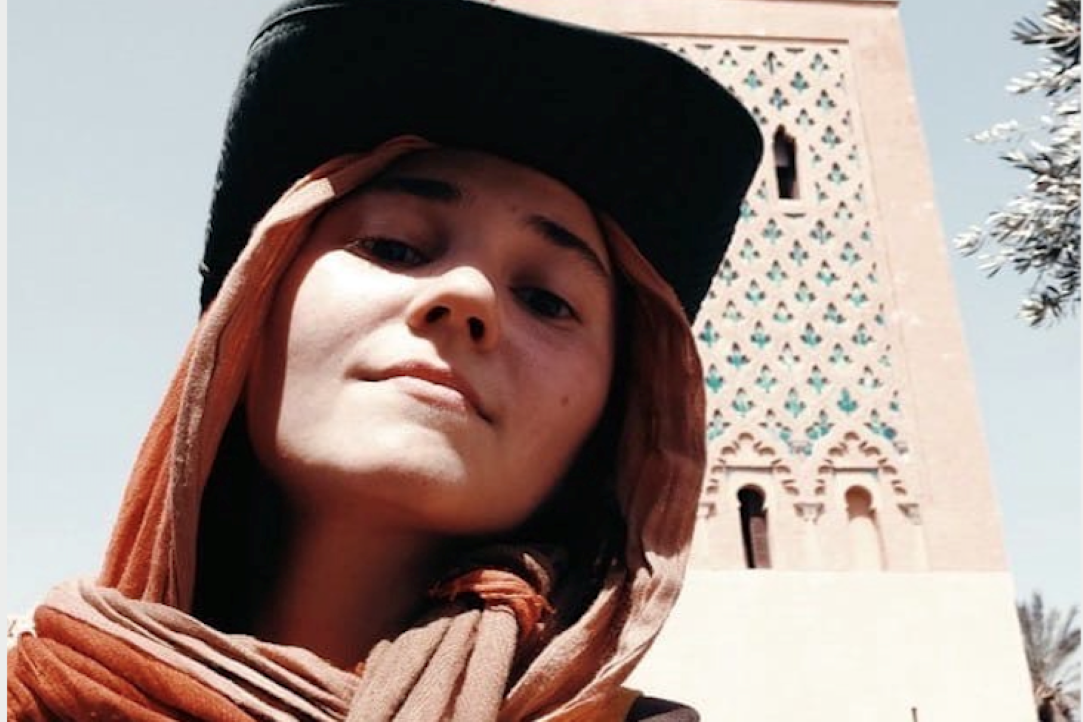Lisa's Adventure with the Arabic Language

Living in Russia and being thrown into an environment where one is needed to learn Russian to communicate on a day-to-day basis with people was incredibly difficult for Liza as an international student. It is at the same time an enriching and mind broadening experience, the simple look of pleasure that a person expresses when they see a foreigner treating their language with respect and attempting to communicate in it even though they are making mistakes is very satisfying and contributes to lessening your feeling of isolation and increasing that of integration and solidarity with the natives. Recently I was put in the position of the native when I met Liza, a Russian student of HSE who is studying my own native Arabic, and I wanted to get her perspective and understand what drove her into learning it.
So I’m Lisa Dzyuban, currently living in Saint Petersburg for my 5th year and I study at HSE in the faculty of Oriental Studies, but now this term is not politically correct, so it has been renamed into Asian and African Studies.
This goes back to the last century when the era of colonialism created colonial studies which was multidirectional and studied entire countries which differed from the west. Orientalism has been closely associated with colonialism. Nowadays scientists consider that it is not acceptable to call research made in the last few decades as oriental.
The subjects I am studying now offer a great combination of different types of scientific knowledge and they are closely associated with international relations, political science, linguistics, and social anthropology. Why I personally like these subjects can be explained in a short story.
Once, one of my university professors told us that her dream was to teach the person who will one day bring an end to the Arab Israeli conflict. To make this happen this person should be deeply aware and informed about the processes that are taking place in the region, what she said kindled in me the intellectual passion to go in this direction.
Firstly, I threw myself into tons of literature on different languages and on cultural themes such as customs and traditions in the “Arab world”. The first of the books that I’ve read was the book of our rector Zelenev, it gives the primary view on every detail of eastern cultures. I also read the books of Eugene Rogan and I also tried meeting and talking to people from Arab countries.
I primarily contacted my teachers who were Arab, and within two months, one of them told me she gave extra lessons of Russian language to a Saudi Arabian student, and she put us in contact with each other. After this we started having weekly meetings where I also met other Arabs that were his friends. We were communicating in the beginning in English, after a week we started to add Arab words into our conversations.
Of course, I started taking classes at my university and I’ve been having them for the last 5 years. After the course for beginners, we started studying different arabic dialects. The first one was the Iraqi dialect especially the Baghdadi one. The second one is the Moroccan dajreja which I am currently doing, and next year we will be covering the Egyptian dialect.
For Russian speakers there is a big challenge in the pronunciation of unfamiliar characters such as the “ayn”, “ghayn” etc. We also must memorize the entire challenging grammatical rules. While covering the entirety of the grammar you should start building your vocabulary and acquire a lot of words. In terms of difficulty, I would say that it is harder than my native language and English and many more other languages.
It’s much more difficult to study a language without any chance to practice it on the streets. If you are living in an Arab speaking country, you must use all the knowledge you have gained to solve different interactions and situations. Sometimes you are not well prepared for it, so you must use your imagination and see what happens.
To do this, I chose Morocco to be the first Arab country I travel to. I chose this country for two reasons, the first is that it is a very beautiful country with an ideal climate especially compared to Russia. The second reason was the stable political situation within it.
After the landing of my plane in Marrakesh I went to a “Riyad” which is a special type of hotel located in the old part of the city. After I met the administrator there he was talking with his friend and I was shocked by my inability to understand their speech at all. When he noticed this after a while, he came and sat beside and told me “Do not worry all other Arabs do not understand us either” which was really funny. Even though I stayed only half a month It was very crystal clear to me that modern standard Arabic is not used daily in every part of the Arab world. People found it funny to speak to me when I spoke with them in MSA which was the type of Arabic I was most confident in.
The biggest benefit for every student of a foreign language is to start thinking in that language and I have managed to achieve that during my stay.
Interview by

